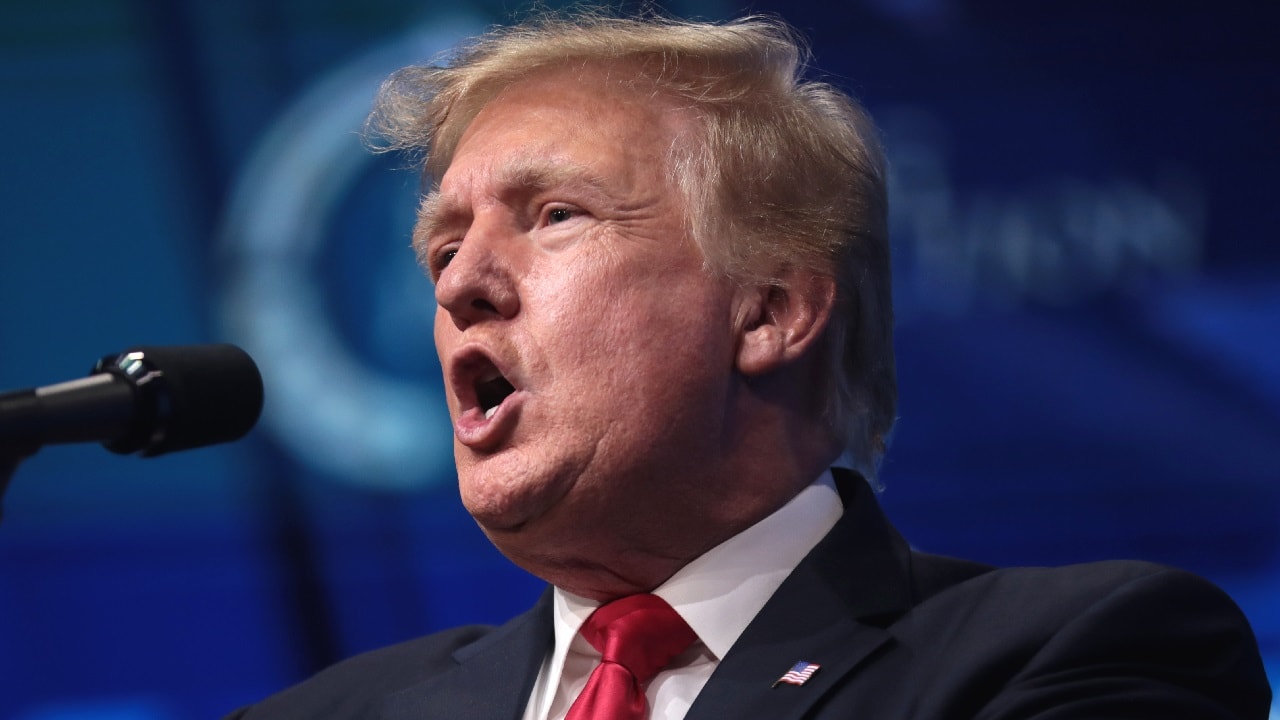Democrats are still reeling for a spate of polls that show Donald Trump running neck-and-neck with Joe Biden in the battle for the White House in 2024.
The latest poll from the Wall Street Journal released this past week has the two standard-bearers tied at 46% each, with just 8% undecided. A half dozen polls released over the previous week had one candidate or the other up by a single digit or two – well within the statistical margin of error.
Democrats who’d hoped that the latest indictment against Trump in Georgia would push the former president’s poll numbers down – and elevate Biden’s – have gotten a rude awakening. Biden’s clearly in trouble.
But it turns out that even these polls substantially underestimate Trump’s support among the US population at large.
USA Today Poll Has Interesting Results for Donald Trump
A just-released USA Today poll conducted among voters who say they are unlikely to cast ballots in next year’s presidential election indicates that these voters overwhelmingly favor Trump.
The daily newspaper conducted a survey among 1,100 eligible voters nationwide who say they are too disgusted with national politics and elected politicians to vote in 2024. Most of these voters didn’t cast ballots in 2020 and many remain unregistered to vote.
But when asked to choose between Biden or Trump, the respondents favored the 45th president by a whopping 2-1 margin
The poll is significant because none of these “unlikely” voters are included in any of the recent national surveys. Typically, these surveys only sample respondents who are either registered to vote or who are deemed “likely” to vote based on their participation in the last two national elections.
Which means support for Trump among all eligible voters – regardless of their voting status – is higher than Biden’s support. Indeed, it’s probably enough to swing the 2024 election in Trump’s favor should a significant share of these unlikely voters actually show up to vote.
The precise magnitude of this pool of non-voters is not quite clear. Currently, barely 60% of all eligible voters cast ballots in a typical presidential election year. Some of these non-voters are registered voters who could vote if they chose to; since they haven’t of late, they aren’t considered “likely” voters by conventional pollsters.
Other non-voters can’t cast ballots because they aren’t registered to vote. Some are young voters that just turned 18 or will turn 18 by next November; they’re eligible to vote, assuming they become registered. Pollsters don’t generally count his group, either.
In 2016, Trump brought a disproportionately large number of these lapsed and first-time voters to the polls, which helped him defeat Hillary Clinton. Pre-election polls that showed Clinton leading Trump, sometimes by double-digits, failed to account for these voters, who disproportionately cast their ballots for Donald Trump. The same pattern could well repeat itself in 2024.
USA Today interviewed some of the unlikely voters it polled to learn more about their antipathy toward voting. The common refrain was deep distrust of the political establishment of both parties –but a higher residual support for Trump due to his willingness to buck conventional wisdom and to take positions considered outside the policy mainstream.
In 2016, that anti-establishment sentiment helped Donald Trump channel voter disgust toward support for his campaign, especially in key swing states like Wisconsin, Michigan and Pennsylvania where Democratic candidates had traditionally prevailed but which swung Trump’s way – in most cases, by razor-thin margins
In 2020, Biden managed to swing these disaffected voters back to the Democratic fold – in most cases, by slender margins – in part because Trump’s past support among other key demographics, especially White college-educated men, faltered. Biden also swung Georgia Blue for the first time in decades, giving him a decisive electoral victory.
The big question now is whether Donald Trump can swing these states back again.
Much will depend on the Donald Trump campaign’s ground game – which includes successful GOP registration of formerly unregistered voters, as well as a robust get-out-the-vote effort to ensure that these voters cast ballots for Trump.
Biden’s campaign will be battling to do the same,– but this time from a position of relative disadvantage. His standing with voters is far lower than it was in 2020 when he was running to displace a sitting president who was widely – if unfairly – blamed for the COVID-19 pandemic.
Biden has lost support among nearly every demographic – but especially Hispanics, Asian-Americans and White independents – which has placed his re-election in jeopardy.
Should Biden win his party’s nomination— and so far, there is little indication that he won’t – he could well lose to Trump in 2024 based on his dwindling standing among registered and likely voters alone.
But add to the mix a large pool of disgruntled non-voters, and a narrow Donald Trump victory could turn into a decisive one – a prospect that has Democratic officials in a near-panic, with the 2024 election still 14 months away

